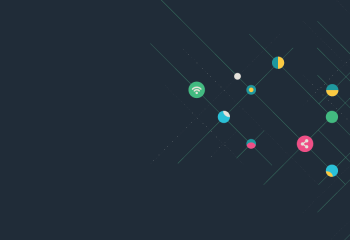
Vinton G. Cerf
Knowing what you know now about the internet and how your venture turned out, what do you wish you had done differently from the beginning?
The internet had its origins in a US Department of Defense project led by its Defense Advanced Research Projects Agency (DARPA). If we wanted to look at its history through a Tolkienesque lens, we might think of the First Internet Age (1969–72) as beginning with the Advanced Research Projects Agency Network (ARPANET), the Second Internet Age (1973–90) beginning with the introduction of the TCP/IP protocols, the Third Internet Age (1991–2007) beginning with the arrival of the World Wide Web, and perhaps the arrival of the smartphone in 2007 as marking the start of the Fourth Internet Age. It is an exercise for the reader to decide who or what Sauron might be in this metaphorical framing.
There have been some important lessons learned through the ages, at least as I see it. The first is that open architectures and practices that invite broad participation and collaboration are powerful memes that continue to inform and incite internet evolution. The second is that this relatively neutral infrastructure has reduced barriers to access to and use of computing technology for about half of the world’s population. Further spread will depend on the economics and availability of internet access as well as informed application of its capabilities.
A third lesson is that, like many open infrastructures, the internet can be used for both beneficial and harmful purposes, in the same sense that road systems can provide huge economic benefits as well as hazards when irresponsible drivers ignore traffic laws, drive drunk or behave in other harmful ways. A fourth lesson is that inventors will discover new ways to use the infrastructure: the World Wide Web and smartphones being two very good examples. A fifth lesson is that, while new applications are relatively easy to add, as are new layers of protocols such as those invented to support real-time services like video conferencing, making changes to the core implementation to add security or to expand the scale of the system can be harder. The adoption of the Internet Protocol version 6 (IPv6), with its huge address space, has been slower by far than I would like. It is my expectation, however, that there will be increased uptake as the so-called Internet of Things populates the internet and more users are added beyond the four billion estimated to have access today.
One of the most important lessons overall has been the essential need for sustainable business models to maintain and expand the reach of the internet. In the early days, agencies of the US government picked up the costs. Eventually commercial enterprises became the principal supporters of the internet. It cannot be overemphasized how vital a sustainable business model is to any success in this space. By design, there were no constraints on the kind of business model that could be used to support the system. There were government-sponsored backbones, commercial, academic and cooperative voluntary access networks. Some were supported by third-party advertising and others by various subscription practices. Interconnection has been essentially achieved by bilateral agreement, often with only a handshake to seal the relationship.
As the internet infrastructure has continued to expand, it has become clear that affordability is a critical aspect affecting uptake even in countries with relatively high per capita disposable income. Driving cost out while increasing capacity to support bandwidth-intensive applications seems to be a key objective. It has been quite remarkable to see the growing use of the internet for streaming audio and video applications, such as video conferencing for working and schooling at home during the COVID-19 pandemic. Even telemedicine has evolved rapidly under these forced conditions. While online education has been a mixed blessing in the K–12 space, there have been major success stories in other realms, such as the engineering master’s degree program at Georgia Institute of Technology that has reduced costs to students by a factor of ten relative to residential programs.
While tackling the challenges of widespread misinformation and disinformation, denial of service, ransomware and other malware attacks continue to be major headaches, to say nothing of harmful extraterritorial nation-state interventions, it seems inescapable that the benefits of online applications outweigh the hazards. International “digital cooperation” is called for by the Secretary-General of the United Nations and will be necessary to shield citizens from harm. There is still a great deal of room for new developments to improve the safety, security, privacy, reliability and utility of the internet. I hope that the coming generations of engineers, businesspeople, inventors and policy makers will absorb the lessons of the earlier Internet Ages to the benefit of all of us who share the unique place we call Earth.
Lessons From the First Internet Ages
What is the future of the internet? Thirty years after the creation of the first web page, what have we learned about the impact of the internet on communication, connection, and democracy? Join the Knight Foundation for Lessons from the First Internet Ages, a virtual symposium that will explore and evaluate what key figures in the development […]
